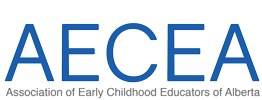Attending this two-day course will train you to intervene with an individual who is thinking about suicide.
Applied Suicide Intervention Skills Training (ASIST) is a two-day interactive workshop in suicide first aid. ASIST teaches participants to recognize when someone may have thoughts of suicide and work with them to create a plan that will support their immediate safety. Although ASIST is widely used by healthcare providers, participants don’t need any formal training to attend the workshop—anyone 18 or older can learn and use the ASIST model.
This workshop is not recommended for people who have had a recent suicide loss.
Audience:
Participants can include but not limited to: parents and caregivers; natural helpers and advisors; educators and ministers; health practitioners; justice, law enforcers, emergency workers, and community volunteers.
Learning Objectives:
Over the course of their two-day workshop, ASIST participants learn to:
- recognize that caregivers and people are affected by personal and societal attitudes about suicide;
- provide life-assisting guidance to a person thinking about suicide in a flexible manner;
- identify what needs to be in a person thinking about suicide’s plan for safety;
- demonstrate the skills required to provide suicide first aid to a person thinking about suicide;
- appreciate the value of improving community resources including the way that they work together; and,
- recognize that suicide prevention is broader than suicide intervention and, includes life promotion and self care for people thinking about suicide and for caregivers.
Location:
Grande Prairie
Date & Time:
April 11-12, 2024, 8:30 am - 4:30pm
For more information and to register, go here.
